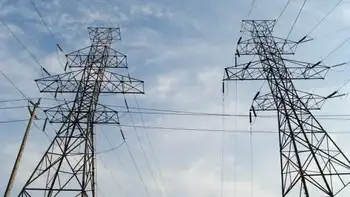'There was no cover-up' of nuclear reactor leak
"We were caught by surprise at the level of interest that the events generated," commission president Michael Binder told the House of Commons standing committee on natural resources. "There was no cover-up. There were no risks to health, safety or the environment from these events."
The nuclear reactor at Chalk River had to extend an outage in December for what operator Atomic Energy of Canada Ltd. said at the time were technical problems.
It emerged last month that 47 kilograms of heavy water had leaked into a sump. About 4.5 kg of radioactive tritium also evaporated.
Binder said the company alerted nuclear safety officials immediately. After a "rigorous international protocol for when you alert the public," the organizations decided not to release the details.
"In the future we will report more on things that we have deemed in the past to be routine," Binder said, noting the commission posted information February 24 about a small leak discovered February 22.
Binder dismissed a suggestion from Liberal energy critic David McGuinty that a government order gave the commission a dual mandate to include considering the need for medical isotopes.
"We have one mandate, and if you think that we are not going to shut down a facility that is unsafe, I think you are making a mistake," he said.
Related News

How offshore wind energy is powering up the UK
LONDON - Plans are afoot to make wind the UKs main power source for the first time in history amid ambitious targets to generate 30 percent of its total energy supply by 2030, up from 8 percent at present.
A recently inked deal will see the offshore wind industry invest 250 million into technology and infrastructure over the next 11 years, with the government committing up to 557 million in support as part of its bid to lower carbon emissions to 80 percent of 1990 levels by 2050.
Offshore wind investment is crucial for meeting decarbonisation targets while increasing energy production, says…




